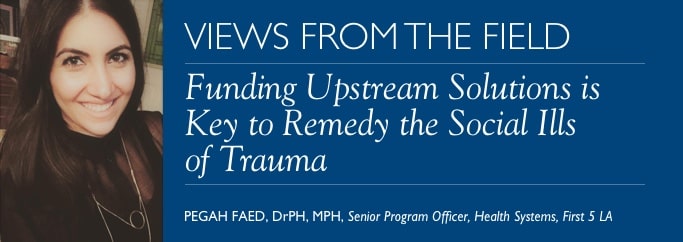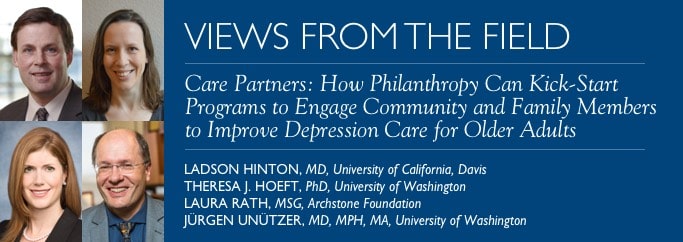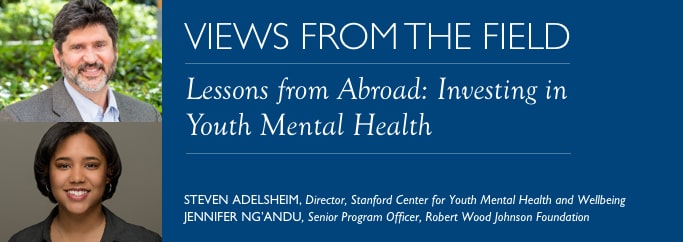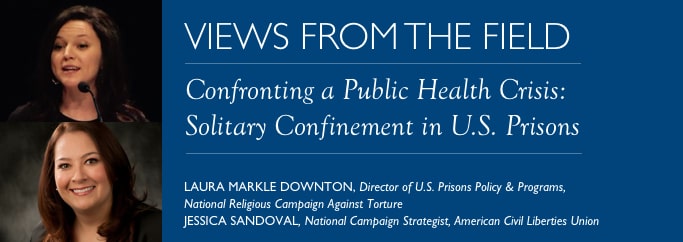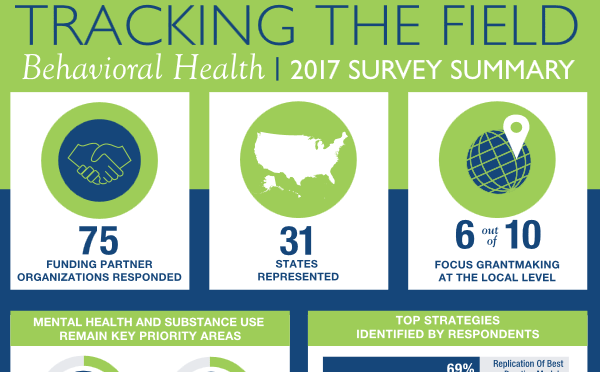Funding Upstream Solutions is Key to Remedy the Social Ills of Trauma
The root cause philanthropy cannot ignore, regardless of the outcomes we seek or the population we serve, is exposure to trauma. Trauma is defined as the effects of a single event, a series of events, and ongoing circumstances that are experienced or perceived as physically or emotionally harmful and life threatening.
Care Partners: How Philanthropy Can Kick-Start Programs to Engage Community and Family Members to Improve Depression Care for Older Adults
Late-life depression is a pressing public health concern among an aging population facing increasing chronic health concerns. As many as 5 to 10 percent of older adults seen in a primary care health setting suffer from depression, which can last for months or even years, and is associated with both decreased quality of life and higher health care costs.
Region 5 Opioid Funders Summit
The Region 5 Opioid Funders Summit was held from June 18-19, 2018 in Chicago, Illinois.
Incorporating Harm Reduction Strategies in Behavioral Health Grantmaking
Funders on this webinar discussed best practices, gaps, and emerging issues in applying harm reduction policies to substance use grantmaking.
Lessons from Abroad: Investing in Youth Mental Health
Now, more than ever, America stands to gain important insights from other countries that have developed comprehensive and effective approaches to youth mental health.
Addiction and Mental Health Policy Update
This webinar included an update on the latest federal and state behavioral health policy issues, as well as a discussion of how philanthropy can best respond in these uncertain times.
Behavioral Health Funding Infographic and Directory
GIH’s latest survey report highlights current trends and gaps in behavioral health philanthropy. GIH surveyed Funding Partners in March 2017 about investments in mental health, substance use, trauma, and other behavioral health issues.
Domestic Violence: A Public Health Priority
Domestic violence represents a significant public health problem that has received limited attention from the field of health philanthropy. Many health foundations fund domestic violence programs, but relatively few funders have identified domestic violence as a strategic priority.


